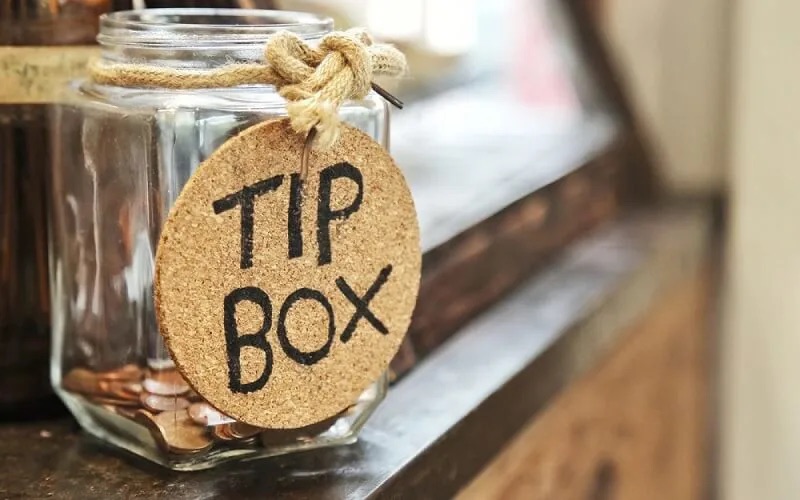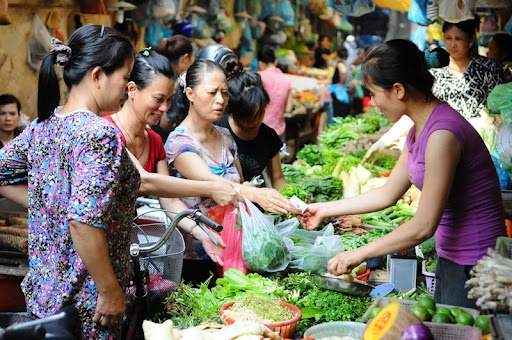Discovering the customs of tipping in Vietnam which offers a delightful twist compared to elsewhere. While tipping isn’t obligatory, it’s a gesture warmly received in certain scenarios. Embracing Vietnamese culture enriches your travel experience, and tipping is a charming part of it. Unlike in some places where it’s routine, in Vietnam, it’s a heartfelt thank-you for outstanding service. Dive into this cultural facet for a more rewarding journey through Vietnam!
See more: Discover Vibrant Vietnamese Culture on Your Adventure
Tipping in Vietnam
When it comes to tipping in Vietnam, it’s not your typical custom, but it’s definitely appreciated. In this vibrant country, tipping is more about acknowledging exceptional service than fulfilling an obligation. Locals take pride in offering great service without expecting extra payment, making tipping a heartfelt gesture of gratitude.

Is Tipping Customary in Vietnam?
In Vietnam, tipping isn’t set in stone, but it’s becoming more common, especially in tourist hotspots like Saigon and Hanoi. However, it’s good to remember that service charges might not always reach the staff. So, if you’ve had an outstanding experience, a little extra as a tip goes a long way in showing your appreciation.
From bustling cities to serene countryside, tipping practices can vary across Vietnam. While you might find tipping more expected in tourist areas, it’s less common in rural regions. Being mindful of these differences ensures you respect local customs wherever your adventures take you.
If you are a history enthusiasts, don’t forget to visit Hoa Lu Vietnam.
Tipping Recommendation for Different Services in Vietnam
- Tipping in Restaurants and Coffee Shops: While street vendors and small eateries might politely decline tips, upscale restaurants often include a service charge. If you’re dining at a fancier spot and receive exceptional service, a little extra as a personal tip is always appreciated.
- Tipping at Bars: At bars in Vietnam, tipping your bartender is a kind gesture. These hardworking folks often rely on tips to boost their income. A small tip to round off your bill not only shows appreciation but might also earn you some special treatment.
- Tipping at Spas: When indulging in a spa day, remember that tips mean a lot to the staff. Even if there’s a service charge included, an extra tip for excellent service is always welcomed and goes a long way in showing your gratitude.
- Tipping Tour Guides and Drivers: Tour guides and drivers play a huge role in making your journey memorable. Tipping them, usually around 10 USD per day for guides and 5 USD per day for drivers, is a lovely way to show your appreciation for their hard work and dedication.

People Who Provide Services Such As Tour Guides Often Get More Tips - Tipping at Accommodations: While tipping hotel staff isn’t as common in Vietnam, it’s still a nice gesture for exceptional service. Leaving a small tip directly for housekeeping or the bellman shows your appreciation for their efforts in making your stay enjoyable.
When and How to Tip in Vietnam: Cultural Considerations
When to Tip in Vietnam
Tipping in Vietnam can be a bit nuanced, so it’s helpful to know when it’s appropriate. In places like upscale restaurants, spas, and hotels, tipping is more common, especially if you’ve received exceptional service. However, since tipping is still relatively new to Vietnamese culture, it’s not always expected.
When deciding whether to tip, consider the level of service and the context. Tipping is more about showing appreciation than meeting an obligation. Being aware of cultural norms helps ensure your gestures are received positively.
Handling Tipping Situations Gracefully and Respectfully
Navigating tipping in Vietnam is all about being sensitive and respectful. Here are some friendly tips to help:
- Watch and Learn: Pay attention to what locals do. If you see others tipping, it’s probably a good idea to follow suit.
- Say Thanks: Along with tipping, a genuine “thank you” and a smile go a long way in showing gratitude.
- Keep it Low-key: When tipping, do it discreetly to avoid any awkwardness. Handing the tip directly to the person is usually best.
- Respect Differences: Understand that tipping customs may vary, and that’s okay. Stay open-minded and respectful.
- Think about the Impact: Consider how your tip will be received. Sometimes, a small tip can mean a lot, especially in a place where wages may be lower.
Approaching tipping with sensitivity and kindness ensures your gestures are appreciated and fosters positive interactions with locals during your visit to Vietnam.
Including My Son Vietnam – a UNESCO World Heritage Site in your Vietnam destinations list.
Tips and Resources for Tipping in Vietnam
Tips for Tipping in Tourist vs. Non-Tourist Areas
Tipping practices can differ depending on whether you’re in a tourist hotspot or a less-traveled region of Vietnam. In places like Ho Chi Minh City or Hanoi, where tourism thrives, tipping might be more common, especially in places catering to international visitors. However, in quieter, off-the-beaten-path areas, tipping customs may vary or be less common.

- Adapt to the Environment: Keep in mind the local context and adjust your tipping behavior accordingly. In places heavily frequented by tourists, tipping may be more expected, while in more remote areas, it may not be as common.
- Respect Local Practices: Always be respectful of local customs, whether tipping is common or not. If tipping isn’t the norm in a particular area, there’s no need to feel obligated to tip excessively.
Guides for Tipping in Vietnam
Finding reliable resources and guides on tipping in Vietnam can enhance your travel experience. Here are some helpful suggestions:
- Online Communities: Platforms and website like facebook, TripAdvisor or Reddit’s travel forums can be treasure troves of information. Tap into these platforms to ask questions and receive real-time advice from fellow travelers who have been to Vietnam.
- Local Insights: Explore blogs or websites run by expats or locals living in Vietnam. These sources offer firsthand insights and practical tips on navigating Vietnamese culture, including tipping.

Tipping Is Not Compulsory Thing in Market – Source: Collected
By utilizing these resources, you can gain a better understanding of tipping customs in Vietnam and ensure your experiences are smooth and enjoyable. Remember, tipping is a gesture of appreciation, so approach it with sensitivity and respect for local customs.
Explore the Top 5 Vietnamese Tunnels: Worthwhile Experience for Every Traveler
Conclusion
In summary, tipping in Vietnam isn’t mandatory but is warmly received. It’s a way to show appreciation for exceptional service. While it’s not as ingrained in the culture as in some places, tipping can make a positive impact. Understanding local customs is important. Ultimately, it’s a personal choice, but tipping generously for outstanding service can enhance your experience and show gratitude to those who make your stay memorable.
Frequently Asked Questions
How much do you tip in Vietnam?
Tipping in Vietnam varies depending on the service received. For restaurants, tour guides, and other services, a tip of 5-10% of the bill or a round-up of the total amount is appreciated.
Is it rude not to tip in Vietnam?
While tipping is not mandatory in Vietnam, it’s considered a courteous gesture to tip for exceptional service. However, it’s not rude if you choose not to tip, especially if the service was average.
Is 100,000 dong a good tip?
A tip of 100,000 dong is considered generous for smaller services like taxis or smaller meals. However, for larger bills or upscale services, a higher tip may be more appropriate.
Is 20,000 dong a good tip?
A tip of 20,000 dong is generally acceptable for smaller services or casual dining experiences in Vietnam. However, for more substantial services or upscale establishments, a larger tip may be more customary.


Related Posts
Vietnam Motorbike Adventures: The Ultimate Guide
With its breathtaking landscapes, rich cultural heritage, and vibrant local experiences, Vietnam offers an unforgettable adventure for motorbike enthusiasts. Discover hidden gems, meet friendly locals, and create lasting memories as you explore diverse terrains and immerse yourself in the heart of Vietnam. Why Choose a Motorbike Adventure in Vietnam? Freedom and Flexibility If you love […]
Experience the Living Conditions in Cu Chi Tunnels: Unbelievable!
Cu Chi Tunnels served as the living quarters for soldiers and civilians during Vietnam’s resistance against France and America. Today, this remarkable site stands as a symbol of perseverance, determination, and resilience during one of the most challenging periods in Vietnamese history. Discover the living conditions in Cu Chi Tunnels with Joy Journeys in the […]
Vietnam Fish Cake: A Culinary Delight
Vietnam fish cake, known for its delicious and diverse flavors, is a favorite among tourists looking to explore authentic Vietnamese cuisine. From the crispy, golden-brown texture of fried fish cakes to the fragrant, herb-infused variations found in regional specialties, these savory delights offer a true taste of Vietnam. In this article, we will take you […]